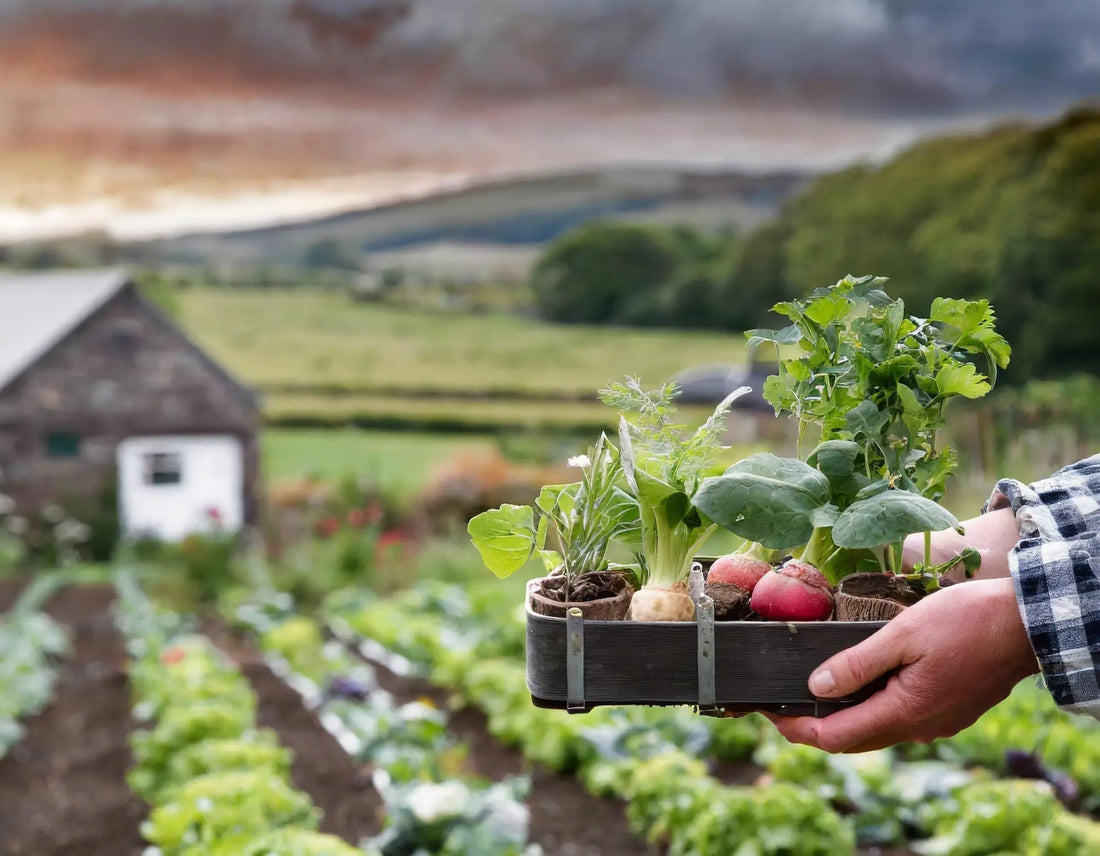
How to Get Started with Off-Grid Living
Share
Off-grid living refers to a lifestyle where individuals or families live without reliance on public utilities, such as electricity, water, and gas. It often involves generating power from renewable sources, growing your own food, and managing waste responsibly. In the United Kingdom, off-grid living is becoming increasingly popular as people seek to reduce their environmental impact, achieve greater independence, and escape the demands of city life. If you're considering making the move to off-grid living in the UK, here's a step-by-step guide on how to get started.
1. Choose Your Location
The first step in any off-grid living journey is choosing the right location. In the UK, some areas are better suited for off-grid living than others due to factors like climate, land availability, and accessibility.
-
Rural Areas: The countryside offers the best opportunities for off-grid living, particularly in remote regions where land is more affordable and less regulated. Areas such as Cornwall, the Scottish Highlands, Wales, and parts of northern England are popular among off-grid enthusiasts.
-
Climate Considerations: The UK has a temperate maritime climate, which can pose challenges for certain off-grid systems, especially solar power. Ensure that your chosen location receives enough sunlight to make solar energy viable, or plan for backup systems like wind or hydro-power.
-
Land Ownership and Permits: Owning or leasing land is essential for off-grid living. Be aware of zoning laws and planning permissions, as building structures or altering the land may require official approvals, even in rural areas.
2. Plan Your Water Supply
Access to water is one of the primary considerations when living off-grid. In the UK, there are various ways to source water:
-
Rainwater Harvesting: Collecting rainwater is a common method for off-grid living. Installing a rainwater harvesting system involves collecting water from the roof of your home or building, filtering it, and storing it in tanks for later use. Be sure to check local regulations regarding rainwater harvesting to ensure you're in compliance.
-
Boreholes or Wells: If your land is in a location with underground water sources, you might consider drilling a borehole or well. This provides a reliable and independent water supply but requires investment in equipment and installation. You'll need to obtain a license from the Environment Agency for boreholes and ensure the water quality is safe.
-
Nearby Streams or Rivers: If your property has access to natural water sources like rivers or streams, you can potentially use these for your water needs. However, it's essential to have a proper filtration and purification system in place to avoid contamination.
3. Power Your Home with Renewable Energy
Electricity is often the biggest challenge for off-grid living in the UK, given the country’s cloudy weather and relatively low levels of sunlight. However, renewable energy options can provide a sustainable and eco-friendly solution.
-
Solar Panels: Despite the UK's often overcast skies, solar panels can still be an effective energy source, especially if you're in a sunnier region. Modern solar panels are designed to work in diffuse light and can generate enough power for most off-grid homes.
-
Wind Power: For areas that experience frequent winds, wind turbines can be an excellent supplement to solar energy. Wind turbines are highly efficient in rural areas where wind is consistent, but they require a considerable upfront investment.
-
Hydropower: If you have access to a stream or river on your property, small-scale hydroelectric generators could be a great option. These systems harness the power of flowing water to generate electricity, providing a steady and reliable power source.
-
Backup Systems: It’s a good idea to install battery storage systems to store energy generated by your solar panels, wind turbine, or hydro-power system. This ensures you have power available during the night or on cloudy days.
4. Create a Sustainable Food Supply
Growing your own food is an integral part of off-grid living, reducing your reliance on grocery stores and providing a sustainable source of nutrition.
-
Gardening: Start by creating a vegetable garden that can supply you with fresh produce. The UK has a temperate climate, which is favorable for growing a wide variety of vegetables and fruits. Raised beds, greenhouses, and polytunnels can extend the growing season and help you manage crops more efficiently.
-
Livestock: If your property allows, consider keeping chickens, goats, or even small cattle for milk, eggs, and meat. Be sure to factor in the space and resources needed for caring for animals and ensure that you're following animal welfare regulations.
-
Foraging: The UK is home to an abundance of wild plants, mushrooms, and fruits that can supplement your diet. Foraging can be a fun and rewarding way to connect with nature, but make sure you know which plants are safe to eat and which ones are toxic.
5. Waste Management and Sustainability
Off-grid living requires responsible waste management to ensure that you’re not polluting the environment. Sustainable systems for managing human waste, food waste, and recyclables are essential.
-
Composting Toilets: A composting toilet is an eco-friendly solution for waste disposal. These toilets break down human waste into compost that can be safely returned to the soil.
-
Septic Systems: In areas where composting toilets aren’t feasible, installing a septic system may be necessary. Be sure to hire professionals who understand UK regulations to ensure that your system is correctly installed.
-
Recycling and Composting: Establish a system for composting food scraps and recycling materials such as paper, glass, and plastic. Many off-grid homeowners also use wood-burning stoves or biomass heaters to reduce waste while providing heat.
6. Off-Grid Heating and Cooling
Heating and cooling your home are crucial for comfort, especially during the colder months in the UK. Consider these options for a sustainable living space:
-
Wood Burning Stoves: A wood-burning stove is a popular choice for heating off-grid homes. It’s efficient, renewable, and provides a cozy atmosphere. Make sure to use sustainably sourced firewood to minimise environmental impact. Many stoves can also be used for off grid cooking.
-
Geothermal or Air Source Heat Pumps: For more energy-efficient heating, consider installing a geothermal or air source heat pump system. These systems extract heat from the ground or air, providing a constant temperature inside your home.
-
Natural Cooling: In the UK, air conditioning is rarely necessary, but passive cooling methods like opening windows, using natural ventilation, and shading your home with plants can help maintain a comfortable temperature.
7. Legal Considerations
Before committing to off-grid living, be aware of the legal aspects involved in the process:
-
Planning Permission: Building an off-grid home or altering an existing structure will require planning permission. Check with your local council to understand what’s allowed on your land.
-
Land Use Regulations: You’ll also need to consider any restrictions on the type of activities you can carry out on your land, including farming, building structures, or installing renewable energy systems.
-
Environmental Compliance: Make sure that your off-grid systems, such as waste disposal and water collection, meet environmental standards to avoid potential fines or legal issues.
8. Building a Community
While off-grid living can provide independence, it’s still important to build a support network. Look for other off-grid enthusiasts, either locally or through online communities, to share experiences, tips, and resources. Living off-grid doesn’t mean living in isolation – you can still stay connected to others who share your values.
Conclusion
Off-grid living in the UK can be a rewarding and sustainable lifestyle choice, allowing you to minimise your environmental footprint and become more self-reliant. However, it requires careful planning, research, and investment. By choosing the right location, setting up renewable energy systems, growing your own food, and managing waste responsibly, you can embark on your off-grid journey with confidence. Whether you’re looking to escape the hustle and bustle of city life or reduce your impact on the planet, off-grid living offers the opportunity to create a fulfilling and sustainable way of life in harmony with nature.
